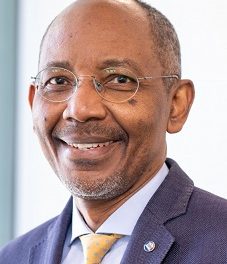
Namwandi leads delegation to UNESCO conference

Dr David Namwandi
The Namibian delegation attending the General Conference which is taking place from 05 to 20 November includes Stanley Simataa, Deputy Minister of Information and Communication Technology. He is also the Namibian representative on the UNESCO Executive Board. Other delegates include staff members from the Namibian Embassy to France and technical experts attending plenary sessions on Education, Natural Sciences, Social and Human Sciences, Culture, Communication and Information. Further sessions focus on financial, administrative and general issues as well as programme support and external relations.
According to a statement issues by Dr. Marius Kudumo, Secretary-General of the Namibia National Commission for UN, Dr Namwandi is expected to deliver the Namibian National Statement in which he outlines the strategic orientations and programmatic priorities of Namibia in education, the sciences, culture and communication and information this Friday, 8 November.
Kudumo also said, that during session, the general conference also consider and approve the UNESCO Medium Term Strategy for 2014-2021 and the Programme and Budget for 2014-2017 as well as elect the new UNESCO Director-General on 12 November 2013 (Next week, Tuesday).
“The UNESCO Executive Board at its l92nd session held from 24 September to 11 October 2013, has nominated the incumbent Director-General, Madam lrina Bokova from Bulgaria for the position of UNESCO Director-General following the interviews which were conducted with all three candidates who have submitted their candidature for the position,” he said.
The main functions of the UNESCO General Conference are to determine the policies and main lines of work of the Organization; to consider and approve the UNESCO Medium-Term Strategy after every eight years; to consider and approve the UNESCO Programme and Budget after every four years; to adopt standard-setting instruments such as conventions, declarations and recommendations in the Organization’s fields of competence; to elect the UNESCO Director-General after every four years; and to elect the members of the UNESCO Executive Board and intergovernmental councils and committees.










































